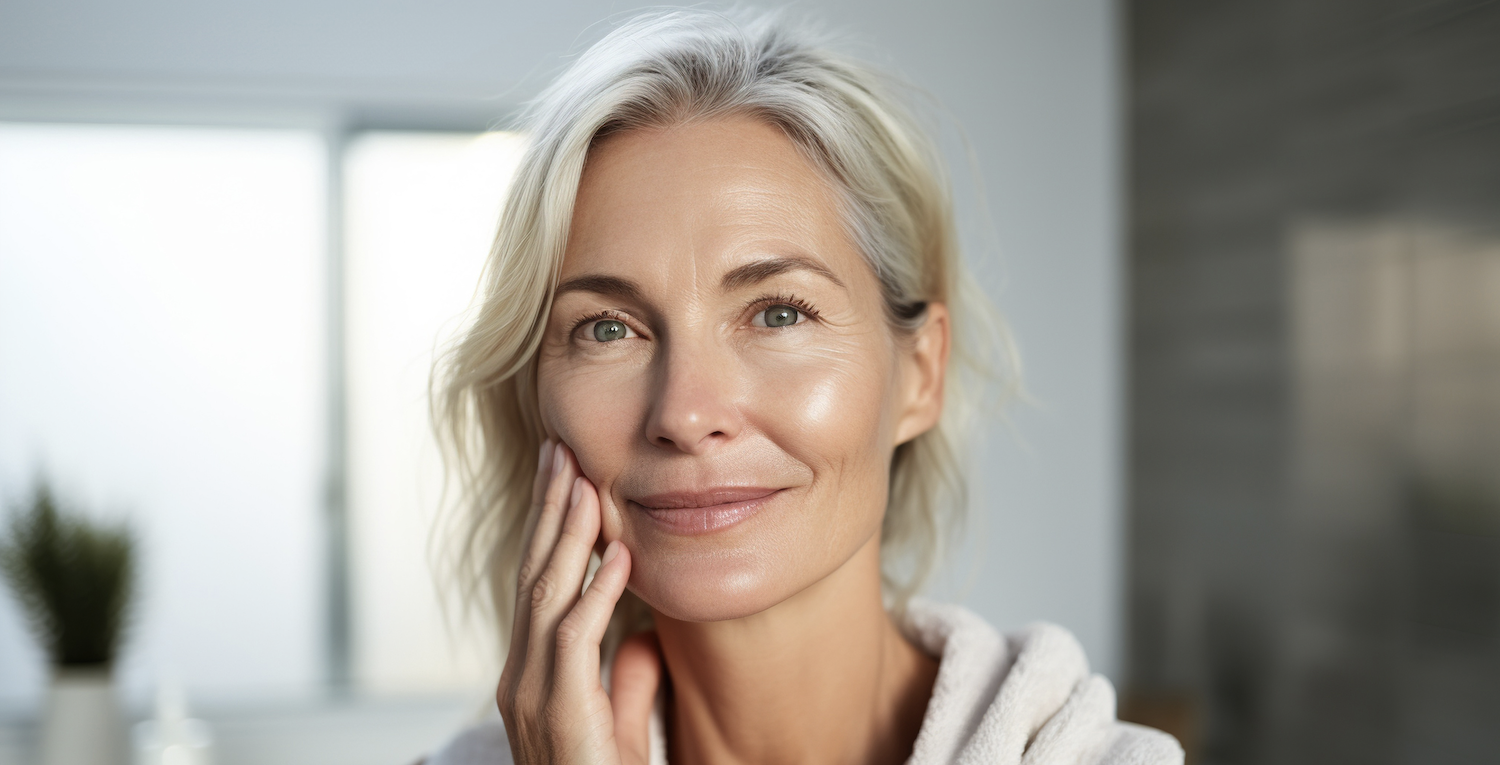
09 Oct Skin in Menopause | How To Look and Feel Your Best
Menopause and Skin
Menopause is a natural part of life that affects all women, but it can also bring some unwanted changes to the skin and appearance. These changes are caused by a decline in estrogen levels, which is a hormone that plays a key role in skin health.
Hormonal Changes During Menopause and Their Effect On The Skin
Estrogen helps to keep the skin hydrated, plump, and elastic. It also helps to produce collagen and hyaluronic acid, which are two proteins that are essential for healthy skin. As estrogen levels decline during menopause, the skin can become dry, thin, and wrinkled.
Other hormonal changes during menopause can also affect the skin. For example, increased levels of testosterone can lead to acne breakouts. And changes in progesterone levels can cause skin sensitivity and irritation.
Common Skin Problems During Menopause
Some of the most common skin problems that women experience during menopause include:
- Dryness and itching
- Fine lines and wrinkles
- Loss of firmness and elasticity
- Age spots and sunspots
- Acne
- Rosacea
- Eczema
Skincare Ingredients to Help With Menopausal Skin
In addition to the general skincare tips above, there are a number of skincare ingredients that can be particularly beneficial for menopausal skin. These ingredients include:
Retinol
Retinol is a vitamin A derivative that helps to stimulate collagen production and reduce the appearance of fine lines and wrinkles.
Hyaluronic Acid
Hyaluronic Acid is a humectant that helps to draw moisture into the skin. This can help to improve skin hydration and reduce dryness.
Niacinamide
Niacinamide is a form of vitamin B3 that has a number of benefits for the skin, including reducing inflammation, improving skin barrier function, and reducing the appearance of age spots and hyperpigmentation.
Peptides
Peptides are short chains of amino acids that help to stimulate collagen production and improve skin elasticity.
Antioxidants
Antioxidants such as vitamin C and vitamin E help to protect the skin from damage caused by free radicals. Free radicals are unstable molecules that can damage collagen and elastin, leading to premature aging.


